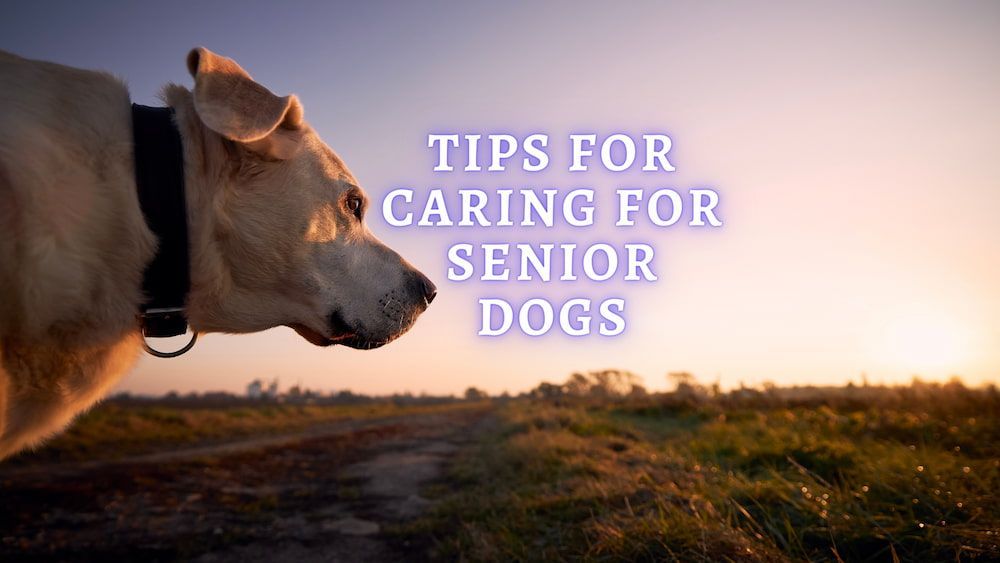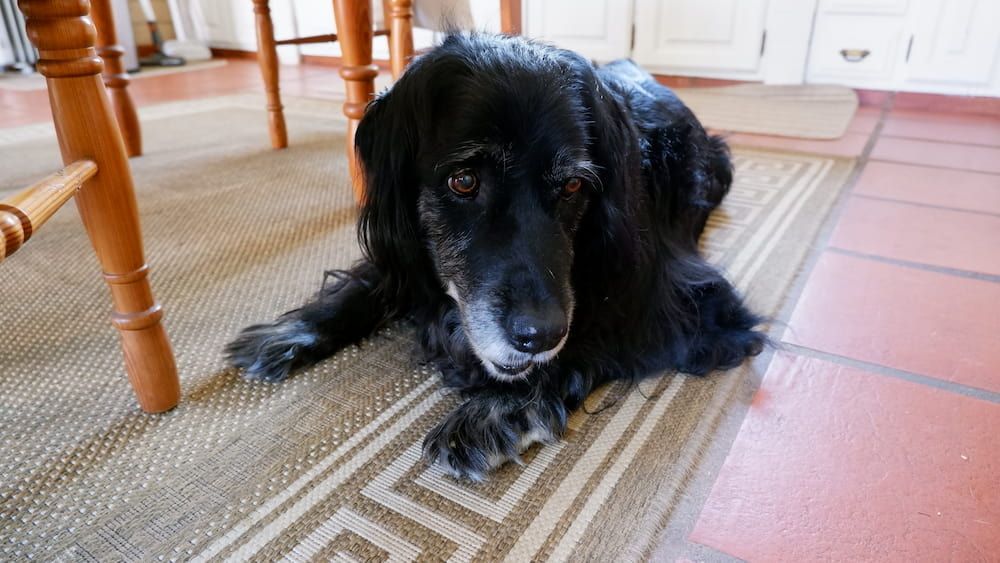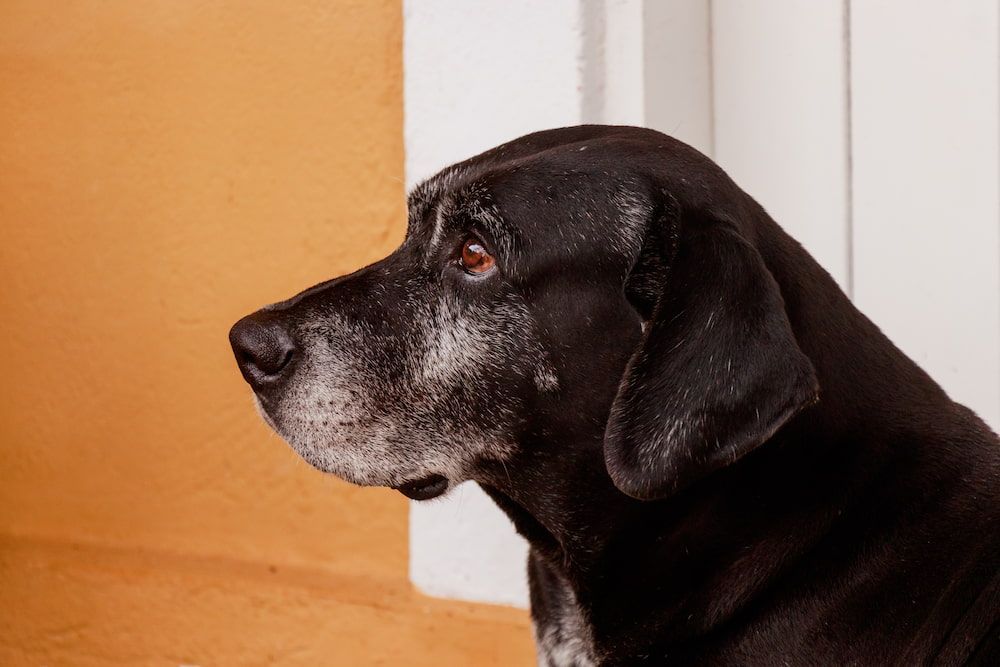5 Top Tips When Caring For A Senior Dog
Written by:
Author: Olivia De Santos
Olivia De Santos is an animal lover and professional writer. She loves spending time with her senior dogs, Blue & Pip and writing pieces to help people become better dog owners.
View all 1 articlesLearn about our editorial process and veterinary review board.
Viewed: 82
Updated on: 12/24/2022
So your dog is getting old, or you’re considering adopting a senior dog (go you!). That could be both a source of joy and anxiety for you.
- The joy that they have reached their twilight years and spend them with you.
- Anxiety that your dog’s changing body and mind may be difficult to manage as an owner.
Don’t worry! As an owner of two senior dogs, I can tell you from personal experience that elderly dog care is nothing to be afraid of. The adaptations you must make are minor but essential to keep your senior dog thriving. In the following article, I give 5 top tips for caring for an old pet that will only partially upend your daily or weekly routine.
Important note: All dogs age differently. From breed to breed but even individual to individual, dogs are susceptible to different ailments and mobility issues in senior life. I have two old pets that are approaching elderly life differently. One is still full of energy and wears himself out trying to keep up with the young pets, and the other is content to live a slow-paced life. Both can happen, so apply the tips below with your unique pooch in mind.
1. Change the way you play
Your dog may have loved a good game of fetch when they were younger. But senior pets should avoid games that create more strain on their joints. If your pooch has symptoms of arthritis, then games like tug of war or fetch may be painful for them.
Instead, why not try puzzle toys? These are calmer games that encourage your dog to keep its mind sharp. Snuffle mats, in particular, are great for pets of all ages as they don’t require too much moving around while still providing mental stimulation.
Speaking of moving around…
2. Don’t forget to exercise your dog
Your dog might be slowing down, but that’s no reason to eliminate exercise. Exercise is essential for weight management, mental health, and cardiovascular health, and a daily walk is recommended for pets of all ages.
However, I will add some nuance to this point. One of my dogs suffers from weak hind legs due to arthritis, so she tires easily. Some days she can walk around the block with few issues, and some days she can only walk to the end of the street and back. On really bad days, she can only walk around the backyard a couple of times.
We adapt our exercise regime to her capabilities, but we still encourage exercise every day. It’s so important to keep your pet happy and healthy.
RELATED: When to Switch to Senior Dog Food?
3. Up your dog food quality
Another crucial part of your dog’s health and happiness is excellent nutrition. High-quality pet food is essential as your dog ages to ensure they get all the nutrients they need. Many dog food brands will have senior formulas to maximize your pet’s health as they age. These formulas can include vitamins that target joint health, immune support, and cognitive function. All are at risk for senior pets, so give them an extra nutritional boost by increasing the quality of their food.
We advocate for purchasing the highest quality pet food that you can afford. If you are on a budget, you could consider adding supplements to your dog’s diet to give them a more complex diet. Good supplements to look out for are:
- Green-lipped mussel powder
- Fish oil with omega-3
- Vitamin C and/or E
- MCT oils
READ MORE: The Best Senior Dog Food (Vet Approved Review)
4. Schedule regular appointments with your vet
The vet becomes your dog’s lifeline in old age. Though some pets may have fewer physical and mental problems than others, it’s still worth making regular appointments at the vet to catch any issues before they arise.
Sometimes only going to a vet when a problem occurs can be too late, and it’s like going to the dentist. We really should be going regularly to have a preventative approach to health.
Your vet can also help you adapt your care in line with whatever your dog may be going through as they get older. They’ll have ideas for ways you can exercise, feed, and play with your pup to keep them healthy.
Our recommendation is to schedule an appointment for your pet every two months or at least every quarter.
If an issue does arise, encourage a full investigation before any drastic action or medication is involved.
5. Research the health conditions your dog could be susceptible to
One of the reasons owning a senior dog can be so anxiety-inducing is because of the fear they’ll get sick. If it helps you to feel more in control, get acquainted with the things that could happen and the common ways to treat them. You might be surprised at how normal and surprisingly low-maintenance it can be.
That’s not to say that having a sick pet is without its challenges. It can be challenging for sure, but it’s not as bad as many may think.
For example, my pet’s arthritis. Apart from occasionally having to lift her a flight of stairs or into the car, it’s not that difficult to live with a pet with mobility issues. She still has a great quality of life and enjoys exercising when she isn’t in too much pain. Administering medication for her is easy. She still makes us smile every day.
If you’re worried that your care needs to completely change if your dog gets sick, research the ailments your dog may be susceptible to. Once you have the facts, you can prepare accordingly, and realize it’s all going to be okay!
Final takeaway: Senior dog life can be great
The salient message of this article is it’s all going to be okay! Your pooch may suffer with a few more aches and pains than they once did, but you are equipped to handle it all. Once you adapt your care for a few weeks, it’ll soon become a habit. Giving her daily medication daily and lifting her up occasionally is a normal part of my routine. It will become the same for you.
Never fear old age. Your pup will still be the happy, active, caring companion they always were. Embrace this new phase of life!
 Dog Care Why Do Dogs Roll in the Grass? 4 Most Common Reasons and How To Stop It
Dog Care Why Do Dogs Roll in the Grass? 4 Most Common Reasons and How To Stop It - 67
- 0
 Dog Veterinary Tips Why is my Dog throwing up: Causes and Preventing (Veterinary Advice)
Dog Veterinary Tips Why is my Dog throwing up: Causes and Preventing (Veterinary Advice) - 23424
- 5
 Dog Care Why Is My Dog Bleeding From Its Butt? Causes and treatment of rectal bleeding in the dog
Dog Care Why Is My Dog Bleeding From Its Butt? Causes and treatment of rectal bleeding in the dog - 22076
- 0
 Dog Care My Dog Keeps Scratching His Mouth: Reasons Why Your Dog Scratching Face
Dog Care My Dog Keeps Scratching His Mouth: Reasons Why Your Dog Scratching Face - 17561
- 1























